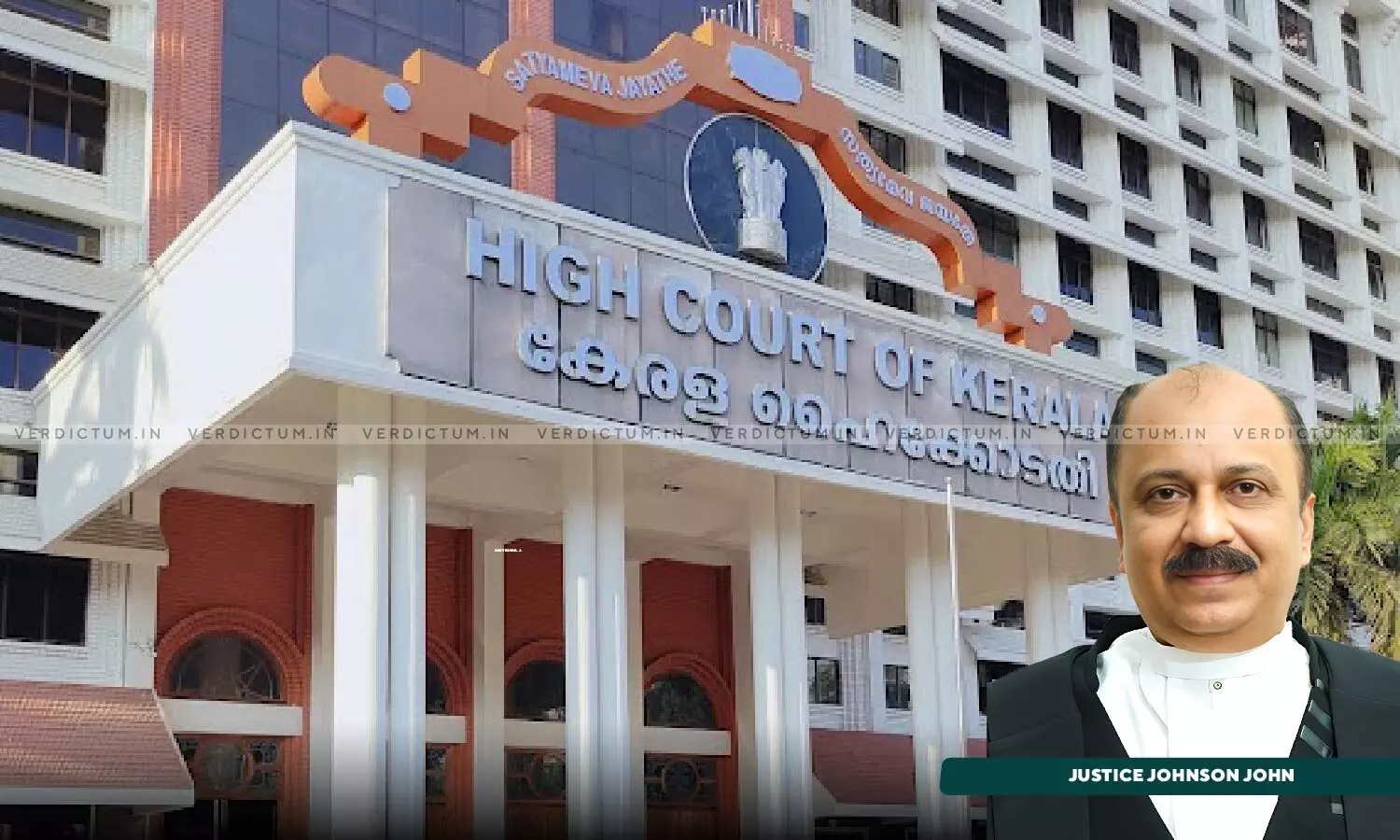
Husband Charged And Acquitted U/S 304B IPC Can Be Convicted U/S 498A IPC: Kerala High Court
 |
|The Kerala High Court reiterated that the husband charged and acquitted under Section 304B of the Indian Penal Code (IPC) can be convicted under Section 498A of IPC.
Section 304B IPC is related to Dowry Death while Section 498A IPC is about Cruelty by the spouse.
The Court reiterated thus in an appeal filed by a man challenging the conviction and sentence imposed on him for the offence under Section 498A IPC.
A Single Bench of Justice Johnson John observed, “The decision of the Honourable Supreme Court in Kaliyaperumal v. State of T.N., (2004) 9 SCC 157] shows that a person charged and acquitted under Section 304B can be convicted under Section 498A. … It is well settled that Section 498A IPC and Section 113A of the Indian Evidence Act include in their amplitude past events of cruelty.”
Advocate Biju Hariharan appeared for the appellant/accused while Public Prosecutor Sanal P. Raj appeared for the respondent/State.
Brief Facts -
The accused got married in 2000 and while the deceased (wife) was living with him in his house, she was subjected to physical and mental cruelty in connection with demand for dowry. She consumed formic acid and subsequently, died in 2002. An FIR was registered under Section 174 of the Criminal Procedure Code (CrPC) and then a final report was filed against the accused and his sister and since she was a juvenile, a separate charge was filed against her before the Juvenile Justice Board. After considering the evidence on record, the Trial Court found that there were grounds for presuming that the accused committed the offences punishable under Sections 306 and 498A IPC.
Therefore, the charge was amended in 2007 and the same was read over and explained to the accused. No evidence was adduced from the side of the defence and thereafter, the Additional Sessions Judge found the accused not guilty under Sections 304B and 306B IPC. However, the accused was found guilty under Section 498A IPC and hence, was convicted and sentenced to undergo rigorous imprisonment for 3 years along with a fine of Rs. 25,000/-. Being aggrieved by such judgment, the appellant/accused was before the High Court.
The High Court in view of the facts and circumstances of the case said, “Clause (b) of the explanation provides that harassment of the woman where such harassment is with a view to coercing her or any person related to her to meet any unlawful demand for any property or valuable security or is on account of failure by her or any person related to her to meet such demand, would also constitute cruelty for the purpose of Section 498A IPC. In this case, the evidence of PWs 1 and 11 clearly shows that the accused demanded 5 cents of property and a sum of Rs.25,000/- as dowry and the deceased was severely beaten and driven out of the house and she was told that she will be allowed to reside with the accused only after meeting his demand for dowry.”
The Court referred to the decision in the case of G.V. Siddaramesh v. State of Karnataka, [(2010) 3 SCC 152], which showed that cruelty can either be mental or physical and it is difficult to straitjacket the term cruelty by means of a definition, because the same is a relative term. In this case, there was a clear evidence to show that there was pressure on the deceased to arrange Rs. 25,000/- and 5 cents of property as dowry and there was also evidence to show that she was manhandled by the accused in this connection.
“In this case, even though there is no evidence to show that the accused subjected the deceased to cruelty or harassment soon before her death, it is in evidence that the accused subjected the deceased to cruelty and harassment by demanding 5 cents of property and Rs. 25,000/- as dowry and when she failed to meet the unlawful demand of the accused, she was beaten and driven out of the house and the deceased has disclosed all these facts to PWs 1 and 11 before her death and I find that the evidence of PWs 1 and 11 in this regard is reliable and trustworthy and in spite of serious cross examination, the defence has not succeeded in establishing any serious contradiction or omission amounting to contradiction in their evidence and therefore, I find that the trial court rightly convicted the accused for the offence under Section 498A IPC and considering the nature of the offence and the facts and circumstances of the case, there is also no reason to interfere with the sentence imposed by the trial court”, it noted.
Accordingly, the High Court dismissed the appeal and confirmed the conviction of the appellant.
Cause Title- N. Ansari v. State of Kerala (Neutral Citation: 2024:KER:40002)